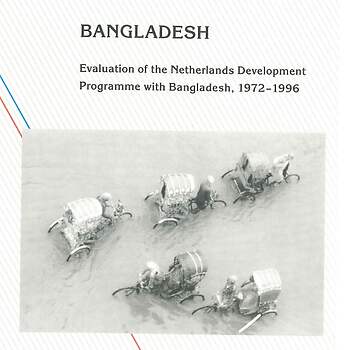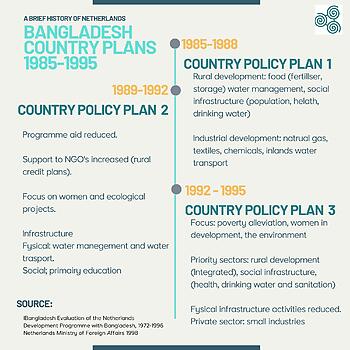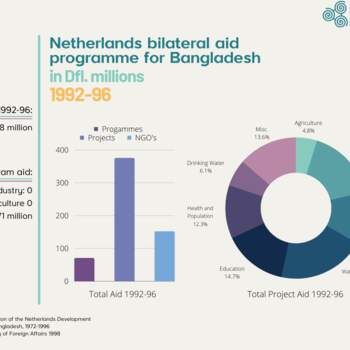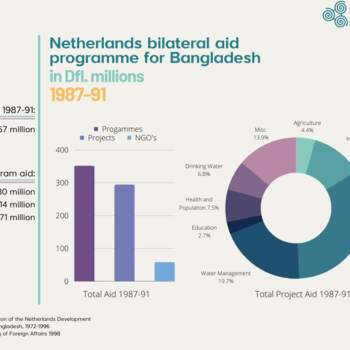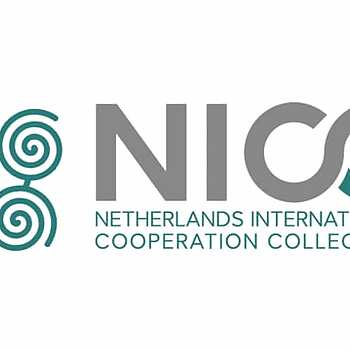Political context
Begum Khaleda Zia (1991-1996)
After the 1991 general election, the twelfth amendment to the constitution restored the parliamentary republic and Begum Khaleda Zia became Bangladesh's first female prime minister. Zia, a former first lady, led a BNP government from 1990 to 1996. In 1991, her finance minister, Saifur Rahman, began a major program to liberalize the Bangladeshi economy.
In February 1996, a general election was held. It was boycotted by all opposition parties, meaning BNP won 300 seats (out of 300). The election was deemed illegitimate, so a caretaker government was installed to oversee the transfer of power and a new election was held in June 1996. The process was overseen by Justice Muhammad Habibur Rahman who, as head of the caretaker government, was the first Chief Adviser of Bangladesh.
Sheikh Hasina 1996-2001
The Awami League won the seventh general election. Highlights of the first term as Prime Minister of the party's leader Sheikh Hasina were the Chittagong Hill Tracts Peace Accord and a Ganges water-sharing treaty with India.
Bilateral relations between Bangladesh and the Netherlands
Support from the Netherlands in the seventies and early eighties was geared to improving infrastructure and increasing industrial production including:
- better construction of polders
- construction of warehouses and storage facilities for seed production and food security
- improved drainage
- village roads.
In the early nineties, updated policy insights and concepts were introduced in the policy papers of the newly appointed minister, Jan Pronk, entitled 'A World of Difference' (1990) and 'A World in Conflict' (1993). Under the selection criteria - the level of poverty and the need for aid, the social-economic policy, and the governance and human rights situation - Bangladesh qualified for program support. The intention was to establish structural, long-term development-oriented cooperation with Bangladesh. At the end of the nineties, the Netherlands' policy placed a heavy emphasis on providing aid through program support, and less through project-support concentrated on specific sectors. In addition, disbursement through multilateral donors like World Bank and Asian Development Bank would be pursued.
Recurrent floods and the urgent need for water management was and still is a major issue in Bangladesh. Since the end of the eighties, the Government of the Netherlands (GoN) has, in close cooperation with the Government of Bangladesh, developed programs to address these problems. An example is the Flood Action Program (FAP), a long-term program finalized in 1989 to cope with the recurrent floods in the Bangladeshi delta. It was implemented in close collaboration with other donors including Germany and UNDP, and the first stage of its implementation, with 26 components, ran from 1990 to 1995. The FAP supported implementation of the Char Development and Settlement Project, with its focus on allocating land to the landless and setting up physical infrastructure in the coastal chars.
However, the Ministry of Foreign Affairs' evaluation department (IOB) made it clear that, with just a few exceptions, the Netherlands' contribution to the implementation of institutional and social policy objectives within the framework of technical projects was not a successful and effective approach.
Accordingly, in addition to long-term water management programs, a greater emphasis was placed on direct poverty alleviation and strengthening the social sectors by funding government programs and strengthening relevant institutions.
Annual disbursements for the bilateral development program with Bangladesh came to about 50 million euro. Support increasingly took the form of joint financing with other donors in order to lower overheads. An increasing amount of the budget was disbursed through NGOs like BRAC and Grameen Bank, partly due to alarming levels of pilferage by government officials. According to data from Transparency International, in 2004, Bangladesh ranked 145th out of 147 countries on its corruption perception index.
Shift to funding via NGOs
There were other reasons for increasingly disbursing funds through NGOs and the multilaterals (World Bank and Asian Development Bank). An evaluation of the NGO sector in Bangladesh concluded: “Successive Bangladeshi governments have not succeeded in any fundamental restructuring of society which could tackle the roots of poverty. A major reason for this basic failure of government programs to deliver their intended improvement to the lifestyle of the poor is the clear interlinkage between the rural elite and the government.” (IOB, 1994.)
A case in point is the Netherlands' contribution to basic education in Bangladesh in the period from 1999 to 2009. Roughly 76% of the total contribution of 374 million euro was disbursed through NGOs. Evidence from Bangladesh confirmed that external support for the basic education sector had not replaced domestic expenditure. An analysis of the trends in both public and external expenditure on education in the country between 1990 and 2008 indicated that a 1% increase in the volume of aid for primary education had been complemented with a 0.3% increase in public expenditure on primary education. Most money was spent on the supply side: teachers, books and other teaching materials etc.
Improved trade balance
Development assistance has the greatest impact if it contributes to a conducive business environment. Ultimately, local and foreign economic policy, trade and private investments will determine the pace and direction of development. Trade with the Netherlands in the early 1990s was marked by a sharp increase in exports and a slight decrease in imports. In the six years from 1991 to 1996, exports amounted to Dfl. 1,111 million (505 million euros), while imports from the Netherlands totalled 497 million. This positive trade balance was mainly due to the growth of the garment industry and the subsequent exports.
Sources and Read more:
IOB Bangladesh, Evaluation of the Netherlands Development Programme with Bangladesh, 1972 -1996 - see IOB website.
NICC collection:
- A05060: Het Flood Action Plan, Bangladesh. Een onderzoek naar Aanleiding van het Debat Over Waterbeheersing in Bangladesh, Arend van Riessen (1993).
- A01707: Een Wereld van Verschil, Nieuwe Kaders voor Ontwikkelingssamenwerking in de Jaren Negentig, J.P. Pronk (1990).
- A02992: Een Wereld in Geschil. De Grenzen van Ontwikkelingssamenwerking Verkend, Ministerie van Buitenlandse Zaken (1992).
